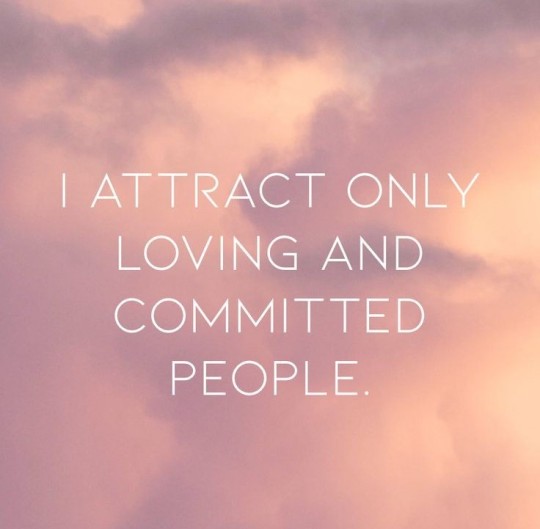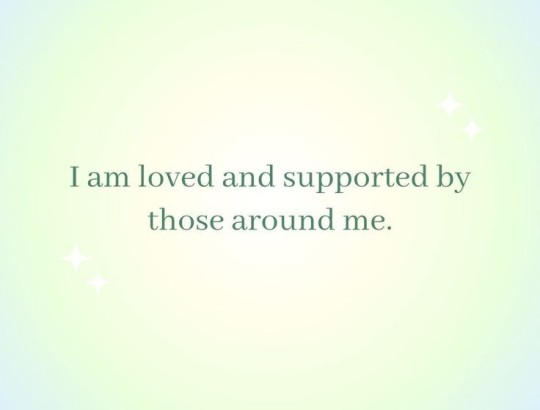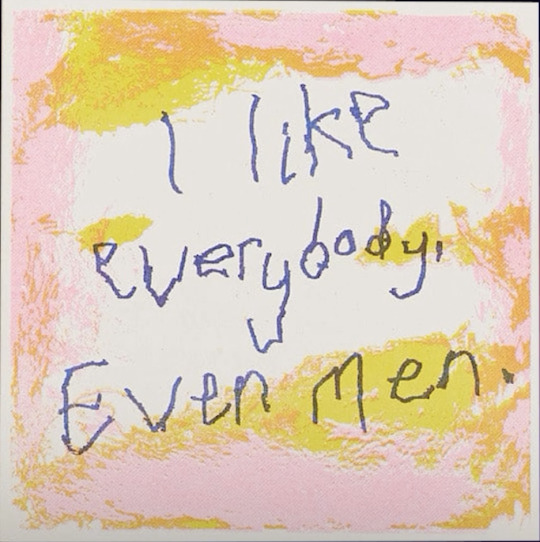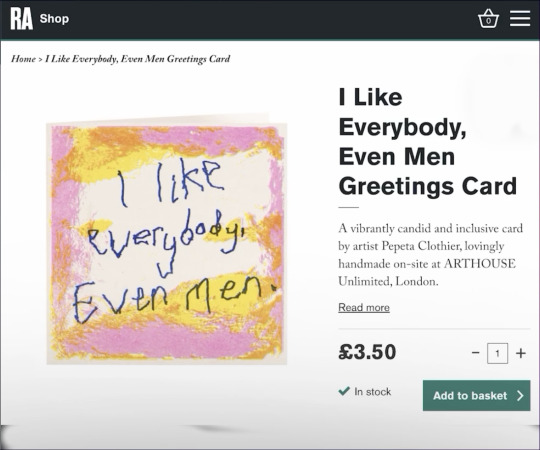#Socialisation
Text
Manifesting Positive Friendships
1. Learn to be yourself - having low self-worth can cause us to accept less than we deserve. How can you find people on your vibe if you aren't showing who you really are? How can the right people find you? Learn yourself. Express your true personality. Share your passions and quirks.
2. Be a good friend - the energy we put out, we get back. If you want the best friend that you can imagine, be the best person you can imagine.
3. Make space - let go of anything that makes you feel unhappy or brings you negativity. Maybe something keeping you from positive friendships is that your space and time are filled with people who don't deserve it.
4. Affirmations:
I consistently attract positive relationships in my life.
I allow my friends to be who they are and how they are at the moment.
I attract loving and commited people.
I meet amazing people everywhere I go.
I cherish my ability to connect with others.
I deserve friends who uplift and inspire me.
5. Journal:
What past friendships have you had? What did you learn from them?
What fears or struggles do you have relating to friendships?
Where have you accepted less than you deserved?
What do you want in a friend?
Who would you like to be friends with?
What makes you a good friend?
6. Socialise - not everyone you meet will become a good friend, but the more people you interact with, the more likely that is. And no one is born with amazing social skills, practice makes perfect.


If you're the person who requested this post, I hope this helps! Love <3
#manifestation#friends#law of attraction#spirituality#spiritualjourney#self love#self confidence#self worth#confidence#socialisation#manifesting#manifest#law of manifestation#law of assumption#friend#friendship#friendships#spiritual#the universe#affirmations#journaling#journal prompts#manifestation tips#advice#spiritualgrowth#growth#relationship#relationships#positivity#positive vibes
121 notes
·
View notes
Text
is my problem too much isolation or too much socialisation
10 notes
·
View notes
Text
Socialisation refers to how we are absorbed into power structures and sets of values. If we do not look at these wider power structures, which actively inform how socialisation takes place, who can do it to whom and to what extent, and materially why socialisation exists, who it benefits and how it is maintained, then our analyses will be hollow.
All of this to say: under patriarchy, mothers cannot socialise their sons nor can girlfriends or wives socialise their male partners to be feminist.
88 notes
·
View notes
Text
I genuinely don't know what "Let's go Brandon" means.
I know it's a thing conservative Americans have adopted, and I think Trump fans in particular. But beyond that, I don't know.
Thus far, I have never had it explained to me.
I have, in fact, gone out of my way to avoid any attempts to explain this to me.
Explain it to me.
Wrong answers only.
#Let's Go Brandon#Political Slogans#Dog Whistles?#Socialisation#Frivolity#Chin Waggery#MAGA Morons#Brandon#Whoever he is
2 notes
·
View notes
Text
I've never been socialized as a cis girl. I've always felt disconnected from cisgirlhood. Most afab trans women share the same experience as me.
How it can be ''cisgirl'' socialisation when you aren't even considered as a 'real girl' ? This dominant narrative, that afab trans women have been socialised as cisgirl and enjoyed tme privilege, is the equivalend of accusing amab trans women of having been male-socialized and exprienced male privilege. Both are false and transmisogynistic myths that should be killed.
Coercive gender assignements aren't privilege. We never internalized cisgirl or male-directed messages. We rejected them, we felt alienated by them, we were never treated as true, real members of our agabs.
"cisgirl/male" socialization aren't accurate concepts to describe our complex gendered experiences. They aren't useful to us. Afab and amab trans women both had transfeminine socialisations, however afab trans women experienced one that was slightly atypical.
#transfem#socialisation#afab trans woman#afab transfem#transgender#trans woman#bioessentalism#discourse#transfeminine#trans#transmisogyny#queerphobia#vent#vent post#misogyny
12 notes
·
View notes
Text
I mean, I have to say that until I started doing this work, I just wasn't dialed into the level of hostility that exists. It's so woven into our fabric and normalised.
I was in a major museum in London the other day, and in their greeting card section, they had a card that says, "I like everyone," and then underneath it in brackets, "even men." And that's like a mainstream London museum. And I thought if I went in there and I saw a card that said, "I like everyone", and then in brackets, "even lesbians", you're just never going to be, you're never going to be allowed to sell that kind of card, in that environment. But we can make those kind of jokes about men.


And it's really interesting to me, I am a gay woman, and I often when people are speaking about men in certain situations, or I am reading posts online, I think if I took out "men" from what's being said, and put in "lesbians", what would I be feeling?
Would that be acceptable? Yeah.
Would I feel safe now if in one hand you were telling me something kind of dismissive and stigmatising and shaming about myself, and then also telling me that I need to speak the things that I'm most vulnerable about, having been probably potentially kept those things to myself all my life.
So, the idea, I think when you've kept things so suppressed, the idea then of being vulnerable about it, about speaking it aloud, is so disorientating.
So of course you're just going to send me further away from feeling the psychological safety that I can actually articulate my pain and have it heard with compassion.
So, I think for me, like one of the most fundamental critical aspects of this, that I think it's incumbent on every single person to sit with, because I know how transformative it has been for myself, sitting with it, so the psychologist I mentioned earlier, Martin Seager and a colleague, John Barry, have come up with these ideas about how our empathy is socialised. So how in our societies, our empathy is socialised to see men as causing harm, more readily than we are to see men as being harmed. So, we're more easy to see men as privileged than to see men as being victims of things.
And when that happens, the landscape is no longer like this in terms of our compassion, it's like this. And that is so dangerous then. That's such a fundamental thing that I think every single human being can start engaging with the work of thinking: how is my empathy being socialised? How am I responding when I'm hearing things about men? How might I be listening to the men in my life differently than I might be listening to the women? And start to reflect on our own kind of behaviors around that.
==
If you're the demographic that can be mocked, belittled and demonized with absolute impunity and no repercussions, you're not "privileged."
#Susie Bennett#empathy#compassion#suicide#male suicide#suicide epidemic#misandry#human psychology#psychology#socialization#socialisation#male victims#male privilege#demonization of men#demonisation of men
4 notes
·
View notes
Text
Hope to meet interesting people.
#socialisation#lone#love and marriage#make fun#make friends#make money online#aesthetic#art#animals#architecture
5 notes
·
View notes
Text
You ever just put up with too much of someone’s shit and then suddenly everything they do annoys you
Them: Hey :)
Me: Shut the fuck up you slimy faced bitch
#autism#neurodiverse stuff#its the neurodivergency#comedy#mental health#sensory issues#neurodiversesquad#autism comedy#depression comedy#depression#stimming#and now IM the bad guy#socialisation#it’s hard
12 notes
·
View notes
Note
Are there no innate differences between men and women and that behavior though? Is it really all socialization and not some brain differences
In terms of behaviour there is no real way for us to fully seperate nature from nurture. We're too social of a species for it. What we do know is that human babies are born extremely underdeveloped compared to other species and that we excel not because we're born with a bunch of ingrained instincts, but because we're REALLY good at learning and adapting. Things become "second nature" to us so easily that we forget we had to be taught them. Neglected children who aren't spoken to may never develop speech despite being born with typical brains. Imagine observing that but assuring yourself that social femininity rituals expressed by people who have spent their entire life in A Society were surely engrained from birth.
"It's socialisation" and "we have different brains" are also not mutually exclusive statements. Our brains are plastic. They change throughout our lives and the areas we use the most will develop further than the areas we neglect. You can't look at a powerlifter and go "well yeah, she only lifts because she has big muscles".
12 notes
·
View notes
Text
youtube
"[Women] ignore red flags because we're so focused on the fantasy of happily ever after "
5 notes
·
View notes
Text
youtube
#ai#artificial intelligence#youtube#whales#sperm whales#sperm whale#communication#code#coda#socialisation#sister satan
3 notes
·
View notes
Quote
The Indian schooling system produces an exceptional, soul crushing conformity, which needs to be studied though a structural frame. This is because the socialisation of students and the transmission of values happen not so much via the curriculum as it does through the system of rewards and punishment embedded in the structure of schooling. This is the domain of cultural aesthetics, where minds are conditioned through images, symbols and rhetoric.
Asim Ali, ‘Imprisoned minds’, Telegraph India
#Telegraph India#Asim Ali#Indian schooling system#conformity#socialisation#transmission of values#system of rewards and punishment#cultural aesthetics#mind conditioning
6 notes
·
View notes
Text
in America we have settled on patterns of land use that might as well have been designed to prevent spontaneous encounters, the kind out of which rich social ties are built.
Many if not most neighborhoods these days are not safe for unsupervised kid frolicking. In lower-income areas there are no sidewalks; in higher-income areas there are wide streets abutted by large garages.
In both cases, the neighborhoods are made for cars, not kids. So kids stay inside playing Xbox, and families don't leave except to drive somewhere.
3 notes
·
View notes
Text
With Tumblr finally catching up to Goncharov I’m surprised I don’t see more about Neve.
Even though she was only a background character, she was definitely my favourite part of the film, and I would think she would be right in Tumblr’s wheelhouse.
Anjelica Huston did an amazing job, especially in the flashback scene and of course the big scene with Antony. And even though I’m sure people will rush to say how problematic her portrayal was, the character was a landmark in trans representation. I also think it’s very meaningful that Antony is accepting of her. It was a big deal at the time to not only see a trans woman on screen, but also see her portrayed positively, and accepted by a main character. I know it went largely unnoticed, but I think it means a lot that the film did this, and I think it handles it well. For the time. I also love that in the credits Anjelica Huston is credited as Neve and not Ivan. It’s a small thing, but I feel like most films in the 1970s would have gotten it wrong.
#Goncharov#Anjelica Huston#Neve#Al Pacino#Antony Clasko#Martin Scorsese#Trans Representation#Trans#Film History#LGBTQ Cinema#Very Serious Films#Socialisation
7 notes
·
View notes
Text
We like to think that we value individuality, but all too often we admire one type of individual—the kind who’s comfortable “putting himself out there.”
Quiet: The Power of Introverts in a World That Can't Stop Talking by Susan Cain
2 notes
·
View notes
Note
Lateral violence is interesting, and definitely accounts for a lot of shitty female to female behavior and treatment. I just don’t know if that also covers some of extremely disturbing things I’ve seen specific types of women blame/do to each other. I know that’s definitely not the majority of women, but it’s definitely enough that I question if anger towards men, directed inward, is the cause of all misogynistic violence between women. I used to know a woman who was openly extremely proud of the fact her boyfriend was insanely abusive to his ex, to the point of choking her till she passed out and locking her in closets, etc. (There was also a heavily racial dynamic to be fair, the previous girlfriend was Mexican, and said woman was the color white.) I’ve also met a few women who were happy to prostitute their daughters, and did so without the involvement/prompting of men, feeling validated by their abuse.
I feel like there’s also a type of misogynistic violence towards women by women that’s not caused by like, internalized anger towards male violence, but rather the embrace of it. Idk, what are your thoughts on this?
I agree that it's not the cause of all bad female on female treatment. I think some women have genuinely embraced misogyny, some women want to be "cool" girls so they treat other women badly, some are homophobic or racists, and I think some women are just bad people.
#radfem#hidden friend#anon#ask#anonymous ask#radical feminism#gender critical#radical feminists please interact#socialisation
5 notes
·
View notes